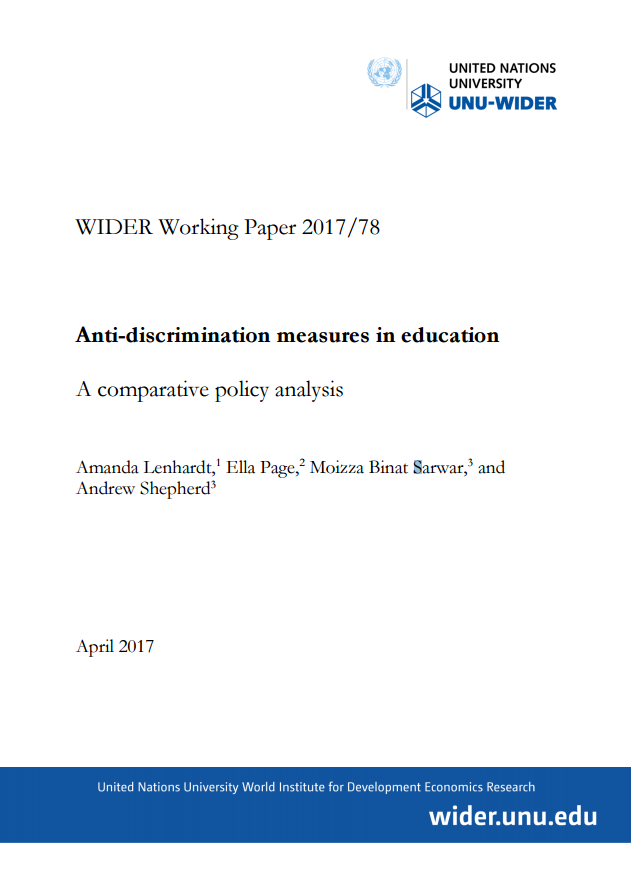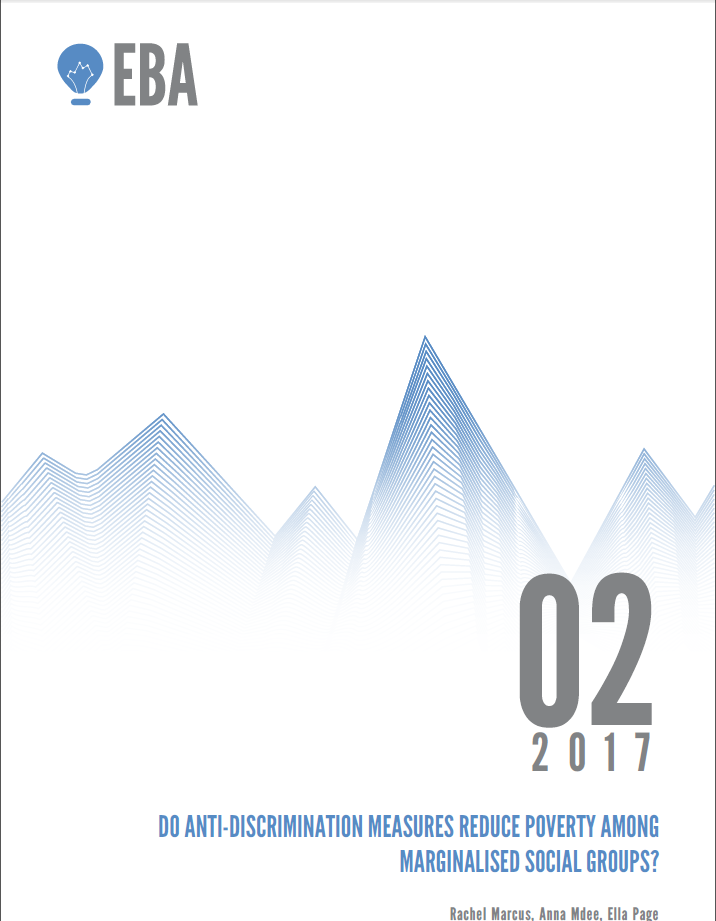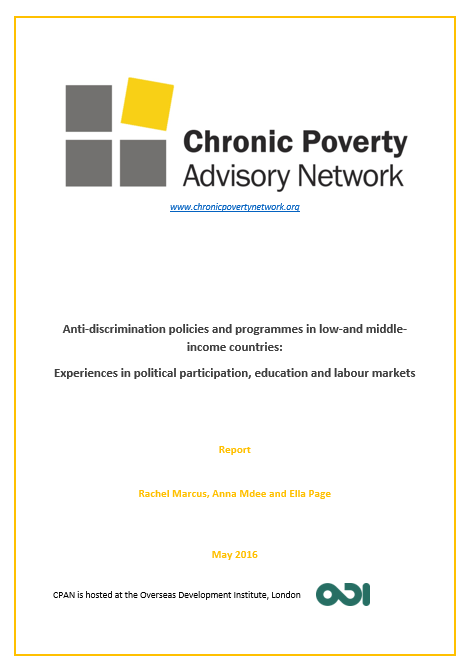Anti-discrimination measures are a key part of poverty eradication policies, and without them, certain categories of people will remain in, or slide back into, poverty. This is the starting-point for this project. It seeks answers to the question: which measures have worked in reducing discrimination against excluded groups and the poorest people, including the poorest children, in lower- and middle-income countries?
In order to answer this question, the project’s methodology includes a systematic review of the literature on this topic, a cross-country quantitative analysis of inequality of outcomes and levels of discrimination, as well as in-depth country evaluations. This process aims at producing a series of outputs:
- A systematic review and cross country quantitative assessment of inequality of outcomes and levels of discrimination; what information and evaluations already exist of anti-discrimination measures, and how they work
- Do Anti-Discrimination Measures Reduce Poverty Among Marginalised Social Groups? - a report which investigates how anti-discrimination policies and programmes contributed to reducing poverty among the poorest people? The report has been launched at the Swedish Expert Group for Aid Studies (EBA) seminar on the 10th February 2017 by Rachel Marcus and Andrew Shepherd. A summary of the discussions can be found in the blog post by Dr. Eva Mineur, Programme Manager at the Expert Group For Aid Studies (EBA), Sweden. A comparative policy analysis on the anti-discrimination measures in education (published by UNU-WIDER)
During Phase I - from 2015 until March 2016 - an Evaluation Partnership was formed of (a) the implementing team at ODI/CPAN, (b) the project’s funders (Save the Children, the Swedish Expert Group for Aid Studies (EBA), the Swiss Agency for Development and Cooperation, Unicef, UNFPA) and (c) leading advisers on anti-discrimination measures, to steer the work. This represents a new approach to evaluation – where the evaluators initiate the evaluation and work in partnership with funders and an expert group - and it will replicate in the second phase of the project.
A discussion on the research findings of this first phase have been held in the event Reflections on the CPAN event "Anti-discrimination measures: a path out of poverty. I
As of June 2018, CPAN has begun work on Phase II of the project. Click here for more information.



